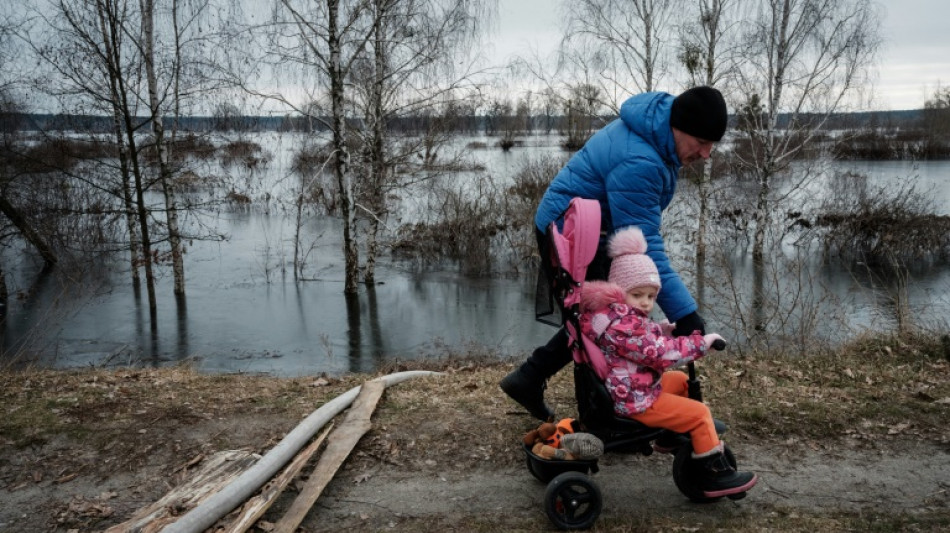
-
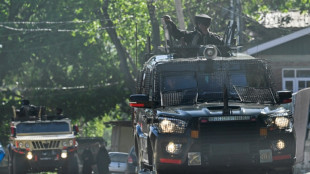 Pakistan says India planning strike as tensions soar over Kashmir attack
Pakistan says India planning strike as tensions soar over Kashmir attack
-
Weinstein sex attack accuser tells court he 'humiliated' her

-
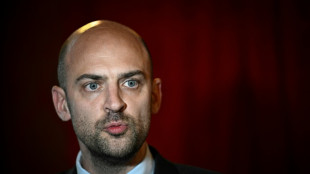 France accuses Russian military intelligence over cyberattacks
France accuses Russian military intelligence over cyberattacks
-
Global stocks mostly rise as Trump grants auto tariff relief

-
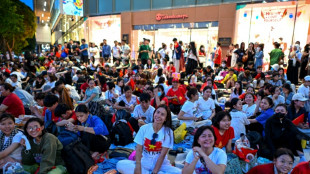 Grand Vietnam parade 50 years after the fall of Saigon
Grand Vietnam parade 50 years after the fall of Saigon
-
Trump fires ex first gentleman Emhoff from Holocaust board

-
 PSG 'not getting carried away' despite holding edge against Arsenal
PSG 'not getting carried away' despite holding edge against Arsenal
-
Cuban dissidents detained after court revokes parole
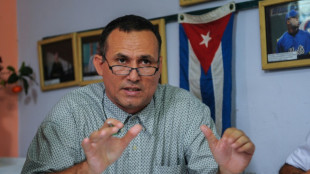
-
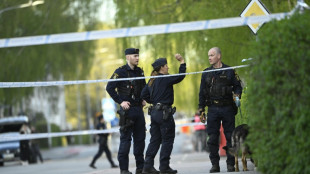 Sweden stunned by new deadly gun attack
Sweden stunned by new deadly gun attack
-
BRICS blast 'resurgence of protectionism' in Trump era
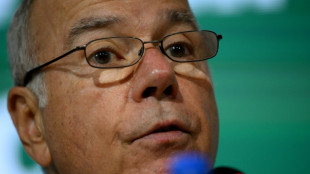
-
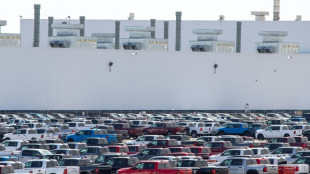 Trump tempers auto tariffs, winning cautious praise from industry
Trump tempers auto tariffs, winning cautious praise from industry
-
'Cruel measure': Dominican crackdown on Haitian hospitals
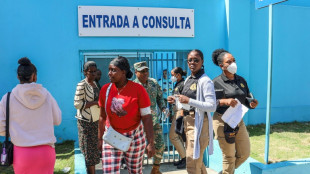
-
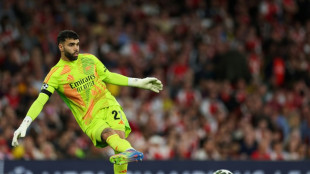 'It's only half-time': Defiant Raya says Arsenal can overturn PSG deficit
'It's only half-time': Defiant Raya says Arsenal can overturn PSG deficit
-
Dembele sinks Arsenal as PSG seize edge in Champions League semi-final

-
 Les Kiss to take over Wallabies coach role from mid-2026
Les Kiss to take over Wallabies coach role from mid-2026
-
Real Madrid's Rudiger, Mendy and Alaba out injured until end of season

-
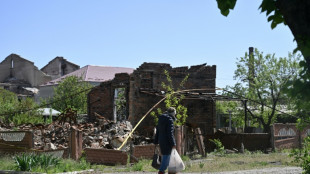 US threatens to quit Russia-Ukraine effort unless 'concrete proposals'
US threatens to quit Russia-Ukraine effort unless 'concrete proposals'
-
Meta releases standalone AI app, competing with ChatGPT

-
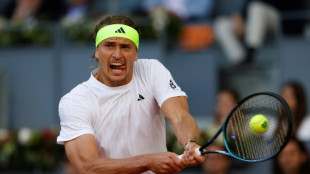 Zverev crashes as Swiatek scrapes into Madrid Open quarter-finals
Zverev crashes as Swiatek scrapes into Madrid Open quarter-finals
-
BRICS members blast rise of 'trade protectionism'
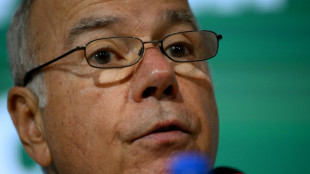
-
 Trump praises Bezos as Amazon denies plan to display tariff cost
Trump praises Bezos as Amazon denies plan to display tariff cost
-
France to tax small parcels from China amid tariff fallout fears

-
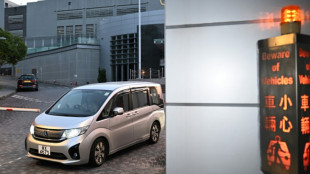 Hong Kong releases former opposition lawmakers jailed for subversion
Hong Kong releases former opposition lawmakers jailed for subversion
-
Trump celebrates tumultuous 100 days in office

-
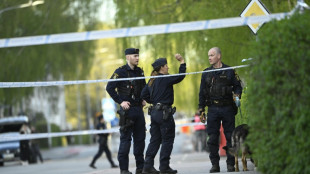 Sweden gun attack leaves three dead
Sweden gun attack leaves three dead
-
Real Madrid's Rudiger banned for six matches after Copa final red

-
 Firmino, Toney fire Al Ahli into AFC Champions League final
Firmino, Toney fire Al Ahli into AFC Champions League final
-
Maximum respect for Barca but no fear: Inter's Inzaghi
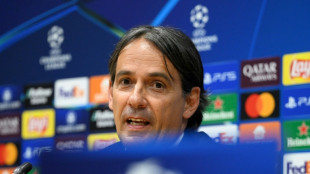
-
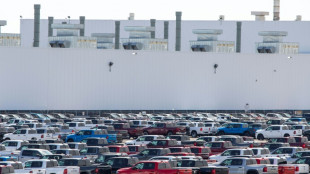 Trump signals relief on auto tariffs as industry awaits details
Trump signals relief on auto tariffs as industry awaits details
-
Cuban court revokes parole of two prominent dissidents
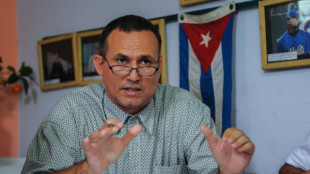
-
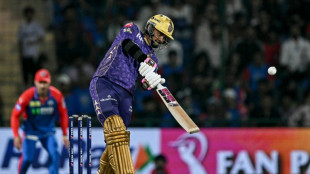 Narine leads from the front as Kolkata trump Delhi in IPL
Narine leads from the front as Kolkata trump Delhi in IPL
-
Amazon says never planned to show tariff costs, after White House backlash

-
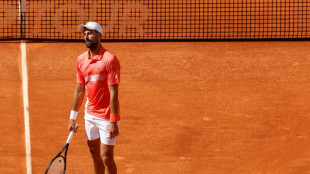 Djokovic to miss Italian Open
Djokovic to miss Italian Open
-
Trossard starts for Arsenal in Champions League semi against PSG

-
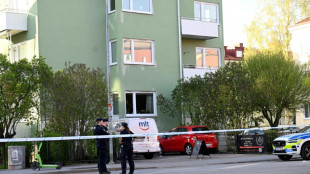 Sweden shooting kills three: police
Sweden shooting kills three: police
-
Real Madrid's Rudiger, Mendy out injured until end of season

-
 Dubois' trainer accuses Usyk of 'conning boxing world'
Dubois' trainer accuses Usyk of 'conning boxing world'
-
Femke Bol targets fast return after draining 2024

-
 Asterix, Obelix and Netflix: US streamer embraces Gallic heroes
Asterix, Obelix and Netflix: US streamer embraces Gallic heroes
-
Watson wins Tour de Romandie prologue, Evenepoel eighth
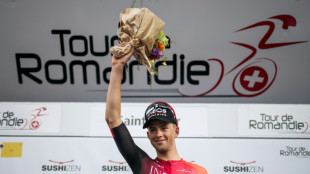
-
 Amazon says never decided to show tariff costs, after White House backlash
Amazon says never decided to show tariff costs, after White House backlash
-
India gives army 'operational freedom' to respond to Kashmir attack
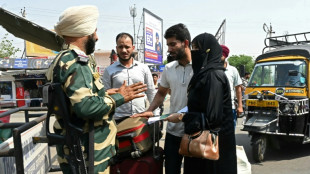
-
 Stocks advance as investors weigh earnings, car tariff hopes
Stocks advance as investors weigh earnings, car tariff hopes
-
Canadian firm makes first bid for international seabed mining license
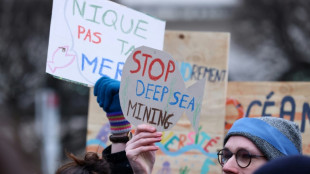
-
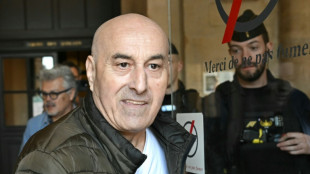 Kardashian robbery suspect says heist was one 'too many'
Kardashian robbery suspect says heist was one 'too many'
-
'Chilled' Swiatek scrapes into Madrid Open last eight
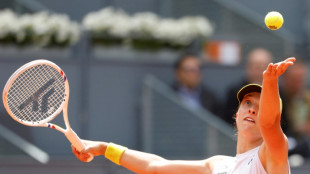
-
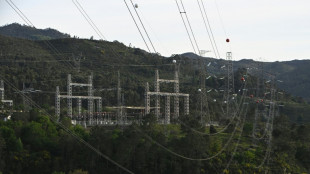 Interconnectivity: the cornerstone of the European electricity network
Interconnectivity: the cornerstone of the European electricity network
-
France accuses Russian military intelligence of cyberattacks
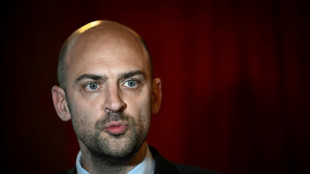
-
 Multiple challenges await Canada's Carney
Multiple challenges await Canada's Carney
-
US consumer confidence hits lowest level since onset of pandemic


'Just lower the water!' Flood fatigue in the village that halted Russia
More than a year after the Ukrainian military flooded his village to halt Russia's lightning march on Kyiv, Ivan Kukuruza's basement is still submerged and his patience is running out.
Authorities sacrificed his hamlet of Demydiv, 35 kilometres (22 miles) north of Kyiv, last February by blowing up a nearby dam in a bid to bog down Russia's invading army.
And while the last-ditch effort helped spare the capital a Russian takeover, the authorities' clean-up efforts have proved much less ingenious and much less speedy.
"Just lower the water levels by half. Even then, no tank could pass through here," Kukuruza, 69, told AFP.
Ukrainian officials have been reticent to intervene, fearing a new Russian assault from the Kremlin's ally Belarus further north.
That has left locals to their own devices, but with little to show for their efforts. For instance, the pumps that Kukuruza bought to drain his property broke because of cold winter weather.
And the 20,000 hryvnias ($540) he received as compensation has not ultimately changed the fact that his basement -- whose shelves are lined with canned pickles -- is still filled with half-frozen, stagnating water.
Despite the difficulty of living in water-logged bog land, like many elderly residents of Ukrainian regions scarred by Russia's invasion, Kukuruza says he isn't going anywhere.
- 'People suffered' -
In fact, according to Demydiv's Mayor Volodymyr Podkurganny, none of the dozens of residents of Demydiv and the surrounding area whose homes were damaged have accepted a government offer of resettlement.
And he sees both sides of the story.
"The original goal was to keep Kyiv, to defend Kyiv," he told AFP during a recent interview.
The Ukrainian military did just that by detonating explosives planted on a barrier at a huge reservoir near Kyiv, sending millions of litres of water into the nearby Irpin river that overflowed its banks.
It took two attempts -- one on the second day of the invasion, February 25, and a second effort two days later -- to destroy the dam and make crossing the river nearly impossible for the Russian troops pushing for Kyiv.
The move bought Ukrainian troops just enough time to regroup and beat back Moscow's forces caught in the heaving bog around the river.
Officials in Kyiv are lobbying for the waterway to be recognised as a "hero river" -- a reference to Soviet-era "hero cities" that held out against Nazi Germany's invasion.
While the strategy worked, Podkurganny recognises that there is another side of the story -- the one where the victory came at a cost.
"There were consequences for the population. Two hundred households were flooded. It's clear that people suffered from this," he said.
And it's clear to him that this suffering is continuing as locals plead with Podkurganny to act.
"I could show you the piles of letters I got, asking me to do something about it," he added.
Yet, not everyone wants action.
Environmental activists say that leaving things as they are could have huge benefits for the region, which was a originally a vast wetland that was drained during Soviet times.
The Irpin river, they say, is only now coming back to life.
"Vegetation and real wildlife have come back over the past year," says Oleksiy Vasylyuk, a biologist and founder of the Ukrainian Nature Conservation Group (UNCG).
"The best thing to do would be to let the valley remain as flooded as possible and let nature recover," he said.
- 'Paradise again' -
For Valentina Osipova, it was painfully clear that the flora and fauna of her home had changed dramatically.
Standing in her now-barren garden that used to produce berries and cauliflower, the animated 77-year-old recounted how last summer beavers took up residence there instead.
"Beavers! They were sunbathing! We actually became friends in the end," the retired language professor said.
The quiet idyl of her modest home, connected to the outside world by a dirt lane, has been replaced by the drone of motorised pumps straining to dry out her corner of the world.
But still she has hope for the future.
"When all the water is pumped out and our land is returned to its former state, it will be paradise again," Osipova said.
Kukuruza agrees.
And he believes that, while the rising waters played their part in holding back Russian forces, they cannot ultimately take credit.
"The Ukrainian people rose and stopped them," he said. "It's not the water that did that."
Y.Kobayashi--AMWN